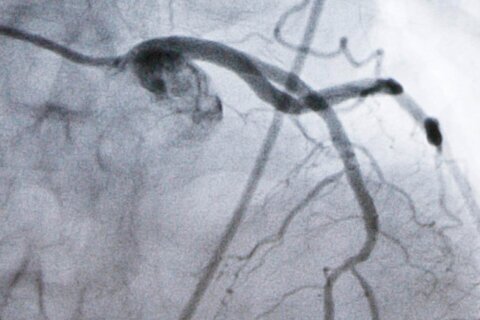No two women are exactly alike — and neither is their PMS.
Marcelle Pick, an obstetrician-gynecologist and founder of the Women to Women Clinic, an integrative care center in Maine, has seen every symptom in the book. Some women are lucky, she says, and never experience headaches, irritability or mood fluctuations. Others become tired and moody, with tender breasts and muscle cramps. And in extreme cases, “some women can’t function. They plan their lives around their periods, and don’t do anything.” They don’t leave the house. They experience bouts of anger and sadness, which disrupt their relationships and careers. In one alarming instance, Pick recalls, a patient became suicidal every month. But like clockwork, her depression subsided several days after her period began.
Experts say they don’t know exactly what causes premenstrual disorder, or PMS — a condition the American College of Obstetricians and Gynecologists says affects at least 85 percent of women. Nor do they know why it differs so dramatically from person to person. There’s no objective way to measure or diagnose PMS, nor is there any way to gauge whether one’s PMS is “normal.” And despite solid evidence that it exists, no one knows exactly why PMS occurs.
Researchers reckon that PMS — which consists of physical and emotional symptoms during the days or even weeks before one’s menstrual period — is caused by fluctuations in hormones, or chemical changes in the brain. It’s also likely exacerbated by external factors. The symptoms are varied and range in severity. Aches and pains, weight gain and bloating are common, as are irritability, anxiety and sadness.
In fact, experts say more than 200 symptoms are associated with PMS. It doesn’t matter which ones you have, though — the only criteria for diagnosis is that you experience one or more emotional symptoms in the weeks before your period for at least three menstrual cycles in a row. And they need to be significant enough to disrupt your daily life before tapering off a few days after your period starts.
Although doctors don’t know what causes PMS, they’ve identified a few factors that could be making your symptoms worse than those experienced by others. Some can be changed; others can’t. The bottom line, Pick says, is that “you don’t have to suffer. There are some treatments available.”
Diet, Vitamins and Supplements
According to doctors, what you put into your body might make your PMS symptoms worse. “As crazy as it sounds, diet can make a huge difference with PMS,” Pick says. She recommends cutting back on caffeine and salt. She also suggests eliminating refined carbohydrates, processed foods and sugar. These, Pick says, can exacerbate PMS symptoms.
There’s evidence, she continues, that cutting back on gluten could alleviate some PMS symptoms. And studies have shown that consuming more calcium through supplements or dairy products can also help.
Pick gives her patients multivitamins, turmeric, evening primrose oil and fish oil — all of which might alleviate PMS symptoms. Occasionally, she also suggests progesterone or B6 vitamins.
Hereditary and Environmental Factors
“We don’t really have an answer” for why some women experience PMS worse than others, says Andrea Rapkin, interim chair of obstetrics and gynecology at the UCLA School of Medicine. “Like most medical disorders, it’s going to probably be a combination of genetics, what happens to modulate your genetics after birth and your environment.”
In twin studies, she says, identical twins are more likely to both have PMS than fraternal twins. And research suggests that factors like stress are also common in the histories of women who have higher incidents of PMS.
“When assessing the symptoms themselves, we have to look at the setting in which they’re unfolding — the stresses that someone is undergoing, their particular coping skills and their resilience,” Rapkin says. “If someone has a severe set of symptoms, an effective treatment might be helping them cope or taking them out of a stressful environment.”
While you can’t change your genetics, studies indicate activities like exercise might lessen PMs-related symptoms. And experts say other stress-relieving activities such as massage, therapy, meditation or yoga might also help.
Anxiety, Depression or Other Conditions
According to Rapkin, there’s “significant'” overlap between severe PMS and chronic fatigue disorder, thyroid disease and psychiatric disorders including major depressive disorder and anxiety. According to the American College of Obstetricians and Gynecologists, about half of women seeking treatment for PMS have depression or anxiety — which often worsens during PMS. Additionally, PMS appears to be more common in women who suffer from postpartum depression.
In short? Get treatment for your depression, whether you choose medicine or therapy. It might help your PMS — and your overall mental well-being.
Premenstrual Dysphoric Disorder
If PMS is dramatically interfering with your life, you may have premenstrual dysphoric disorder, or PMDD — a severe form of PMS that affects roughly 3 to 8 percent of women, according to Ellen Freeman, a professor of obstetrics and gynecology at the University of Pennsylvania and director of the school’s Human Behavior and Reproduction Program.
Like PMS, PMDD occurs once a month, several days before a period begins, and goes away soon after it starts. However, it’s more emotionally disabling than PMS. Women who have PMDD experience myriad symptoms, including anxiety attacks, anger, despair and mood swings or frequent crying. PMDD is often mistaken for other psychiatric disorders, such as bipolar or major depressive disorder.
Like PMS, doctors don’t know why some women suffer from PMDD while others don’t. So how does a woman know whether she has PMS or PMDD? For one thing, she needs to experience at least five emotional symptoms to meet the diagnostic criteria for PMDD. Plus, Pick says, PMDD “incapacitates a woman’s life. It affects them so much that there has to be a medical intervention.”
Amanda LaFleur, a mother of two who lives in Denver, Colorado, always suffered from terrible PMS. “It became increasingly worse as I got older, but I just thought that was the way women were. ‘Oh, this is PMS — this is what everybody laughs about, jokes about.’ Everybody has it.” Although her symptoms were often so bad she’d self-medicate with alcohol, she never thought her experiences were abnormal.
But in 2010, LaFleur hit a breaking point. Her PMS, she says, was ruining her life. She didn’t just have “mood swings” — her bouts of anxiety, depression and stress were so bad they nearly ruined her professional and personal relationships. Each month, two weeks before her period, she tried to leave her husband. Her anxiety kept her housebound. And after LaFleur had a miscarriage, her symptoms became so bad she committed herself to a behavioral health hospital.
LaFleur was initially diagnosed with bipolar disorder and prescribed mood stabilizers. However, she noted that her mood didn’t swing from depression to extreme highs, or mania. And her mood swings only occurred once a month, right before her period, and dissipated after it began.
A gynecologist eventually diagnosed LaFleur with PMDD. She went off the mood stabilizers and tried an estrogen-containing birth control pill, which can help alleviate PMS symptoms. She eventually went on Prozac, a selective serotonin-reuptake inhibitor antidepressant that’s commonly prescribed to treat PMDD. And LaFleur eliminated gluten and dairy from her diet, which made a “huge difference” in her mood.
Eventually, LaFleur gained control of her PMDD and lives a normal life. Today, she’s head of the National Association for Premenstrual Dysphoric Disorder, an advocacy and support group she founded for women with PMDD.
“PMDD ruins your interpersonal relationships, and it gives you depression and suicidal ideation. These things aren’t normal,” she says. “That’s not PMS — it’s another realm. I can now understand my experience, and hopefully help some women avoid it.”
More from U.S. News
The Fertility Preservation Diet: How to Eat if You Want to Get Pregnant
A Tour of Mammographic Screenings During Your Life
Breast Pain? Stop Worrying About Cancer
Is My PMS Normal? originally appeared on usnews.com







